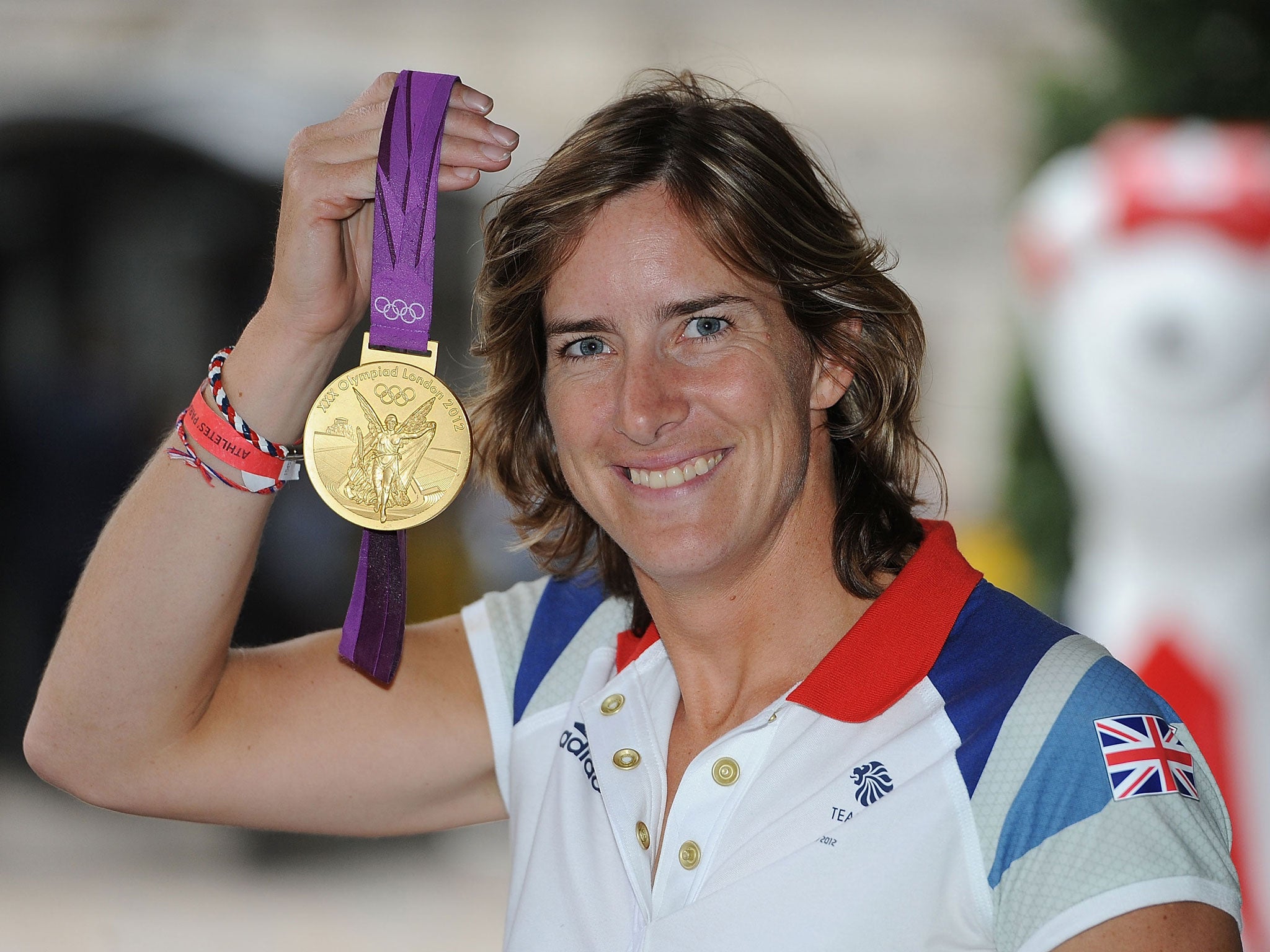Matt Butler: So, what now...? The downside of Olympic achievement
Inspire: The Olympic Journey BBC One

Your support helps us to tell the story
From reproductive rights to climate change to Big Tech, The Independent is on the ground when the story is developing. Whether it's investigating the financials of Elon Musk's pro-Trump PAC or producing our latest documentary, 'The A Word', which shines a light on the American women fighting for reproductive rights, we know how important it is to parse out the facts from the messaging.
At such a critical moment in US history, we need reporters on the ground. Your donation allows us to keep sending journalists to speak to both sides of the story.
The Independent is trusted by Americans across the entire political spectrum. And unlike many other quality news outlets, we choose not to lock Americans out of our reporting and analysis with paywalls. We believe quality journalism should be available to everyone, paid for by those who can afford it.
Your support makes all the difference.You can imagine the feeling. You finally achieve something major like Olympic gold and no sooner has the glow of success faded than the question hits you in the face like a wet flannel: what now?
The question was repeatedly asked on Inspire: The Olympic Journey, the BBC’s latest drive to get Britain’s youth off the couch. It started with all the hallmarks of what you’d expect from a show with the words “inspire” and “journey” in it, like swelling, epic music and clips of champions from Jesse Owens onwards, right up to the still spine-tingling scenes of David Rudisha, Jessica Ennis, Usain Bolt and others at London 2012.
But straight after Gabby Logan’s introduction, the rug was pulled out from under viewers rather abruptly. Katherine Grainger (right) the Olympic champion rower, hosted a sequence based around her wrestling over whether or not to retire now that, after three tries, she finally won gold at London 2012.
She first interviewed fellow rowing gold medallist Helen Glover, who also wondered what to do next, before vowing to carry on, to defend her title in Rio in 2016. Then came Dai Greene, who agonisingly came fourth in the 400m hurdles, a position he succinctly summed up with: “That just sucks.”
He too wants to carry on to Rio, but unlike Glover who relishes the prospect of lining up as an Olympic champion, he wants redemption. Then things got even more downbeat. Victoria Pendleton, the recently-retired cyclist, said through a rictus grin that she is “enjoying having no focus”, to which Grainger tellingly replied: “I know what you mean. I am lost.”
It was an odd way to begin a monthly series supposedly designed to inspire the masses to get active and one which promised to follow hopefuls to next year’s Commonwealth Games in Glasgow and the 2016 Olympics. They did two segments with athletes, the swimmer Siobhan Marie-O’Connor and the gold medal-winning boxer Anthony Joshua, but much of it was concerned with a refusal to soft-soap the Olympic legacy.
It continued with Matthew Pin-sent, who investigated whether London 2012 will actually change attitudes and inspire young people on to the track, river or bikes. He told of the “mixed” fortunes of sports over funding, before interviewing Lord Coe, the London 2012 chairman.
For every well-rehearsed soundbite from Lord Coe, Pinsent spoke of the “difficulty to change a generation”, before asking the rhetorical question of “will future generations point to London 2012 as the inspiration to take up sport or will they see it just as a happy memory and a lot of decoration?”
It was a fair question and one that Sir Chris Hoy, who escorted Logan around Glasgow showing her the sites for next year’s Commonwealth Games as part of the continuity segments that held the show together, would have bristled at as he proudly proclaimed that the Games would transform the city and its people.
But, as Pinsent pointed out, past evidence suggests that a sporting festival is unlikely to change society much, no matter if, as Coe said “people on both sides of the political divide buy into it”, because a few weeks after the bunting comes down, gym attendances drop, trainers stay in the cupboard and the bike begins to rust.
Future episodes will do well to convince the public that it is worthwhile – and fun – to be active. Because those who are active know that it is far better than eking out an existence glued to the box. Here’s hoping the rest of the series looks forward and suggests enjoyable ways to avoid becoming a sloth, rather than wondering whether London 2012 did what it was supposed to do. What now, indeed.
Join our commenting forum
Join thought-provoking conversations, follow other Independent readers and see their replies
Comments